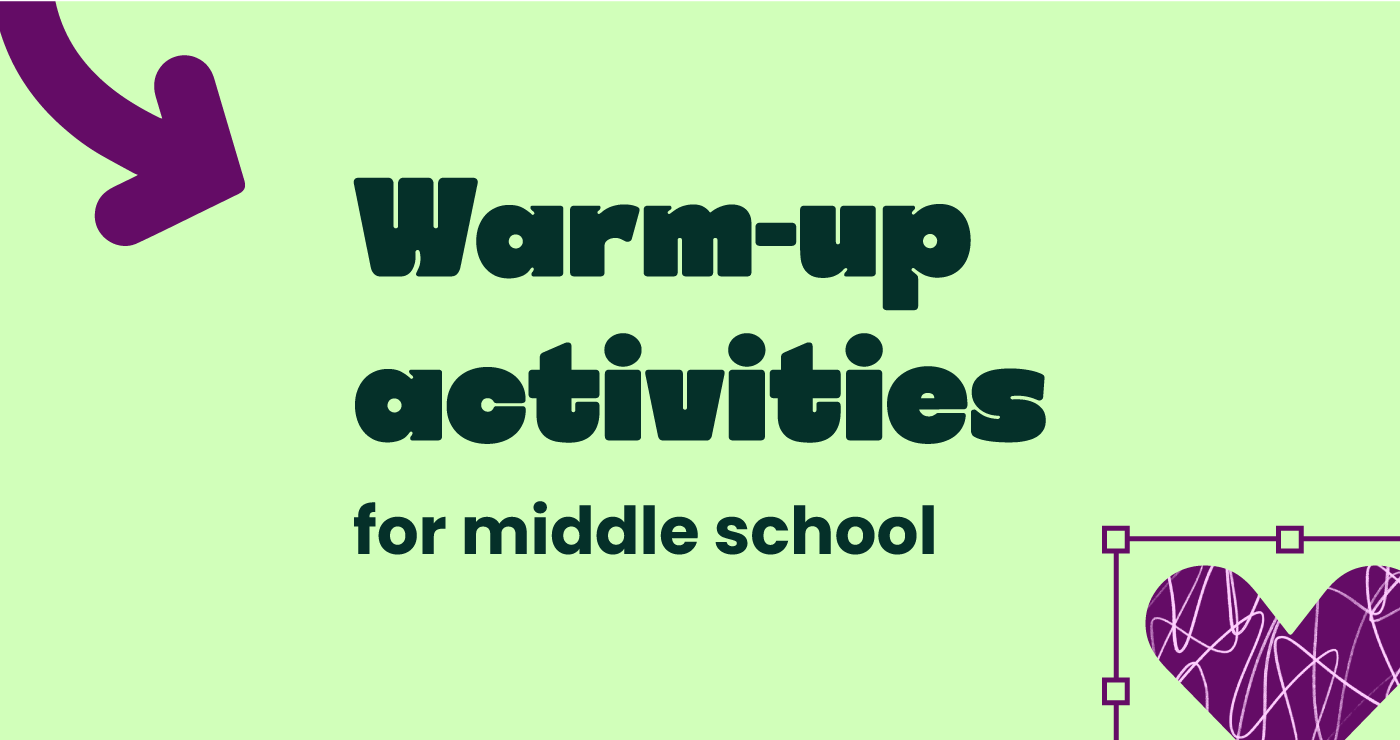Learning is hard. Teaching can be even more so. Middle school students can be easily distracted or struggle with going back to school after a long summer vacation.
The value of warming up is well-known throughout the sporting world. Cold muscles don’t perform as well, and they’re more prone to injury. Don’t forget, the brain is a muscle too! Warm-up activities can be a fun way to introduce a new topic or to test your learners’ recollection of a previous lesson. Most importantly, a good icebreaker can be a great way to develop your learners’ critical thinking, a skill that is in dangerously short supply these days!
Instead of just launching into your lesson plan, why not try one of these warm-up activities for middle school learners? Even just presenting a quick game on the whiteboard can yield great results without spending too many valuable minutes of class. Most of these can be adjusted for different grade levels or different subjects. If you’re teaching high school students, jump over to our blog about warm-up activities for high school classes. Just be sure not to lose too many minutes of class with these fun activities! If this is the first time you’re meeting your class, check out our blog about introducing yourself and making a good first impression.
One-Minute Quiz
A great way to start each class is to devise a quiz that only takes a minute to answer. Somewhere between ten and twenty questions (depending on how kind you’re feeling!) is a good amount. The correct answers can be easily shown on the whiteboard or projector after one minute. No need to waste time marking each individual piece of paper!
If the topic of the quiz is what you covered in the previous lesson, it can be a great way to test retention and see if you need to cover any components again or adjust your future lesson plans.
Or you could make it more like a trivia-type quiz. There’s never a bad time to learn some more general knowledge!
English Language Icebreakers
Even if you aren’t teaching English specifically, there are a ton of benefits to be gained from working on your learners’ English skills. Games focused on English are a great common ground. They can help ESL students in their English language journey. Plus, as many native English speakers will agree, there’s always room for improvement where this particular language is concerned!
- Parts of Speech: If you’re familiar with Mad Libs, you’ll understand the premise of this game. Sit your learners down and first establish if they know the “parts of speech”, such as nouns, verbs, adjectives, and so on. Depending on your learners’ abilities, you could keep it really simple and just stick to nouns and adjectives, and verbs and adverbs. Have them take turns to come up with the filler for the missing words in the sentence. This game can also work if you print off the “Libs” as worksheets and break your learners into small groups. If you don’t have access to Mad Libs (because their site is paywalled) there’s a great free alternative called Mad Takes! Take some time to get familiar with the different templates. They range from extremely short and simple, like “Dragons”, to a lengthy re-imagining of Edgar Allen-Poe’s “The Raven”. If your students become especially amazing at this game, give them challenges, such as only using words that start with a certain letter. This game is a great warm up as it includes everyone and usually ends with some hilarious finished stories!
- Riddle Me This: A simple warm up is to simply write a riddle on your whiteboard at the start of each class, or each week. You could tailor it to suit the subject you teach, there are lots of grade-appropriate math, English, and science riddles out there on the internet! Another great thing about a riddle is that students who finish their work early can continue trying to solve the riddle. The incentive of a tasty prize usually yields a lot of enthusiasm!
- Peaks and Pits: This works well at the start of the school year, or even just after a weekend. As long as a little time has elapsed since you last saw your learners. Ask your learners to think of the best part (the Peak) and the worst part (the Pit) of their holiday/weekend etc. They could say it aloud to the class as you go around the room. Another option is to have them write it as a paragraph, depending on how much time you have.
These warm up activities can be a great way to make the first few minutes of class more engaging for your learners. Use them to introduce a new topic, or to reconnect with your class after a holiday or long weekend. Once you’ve introduced a bit of friendly competition and games into your lesson plans your middle school learners will be itching to start each new lesson.
You may also like

From ancient academies to AI-enabled classrooms

Improving AI literacy in American schools


